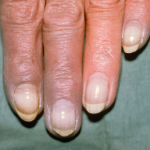“What happened was we didn’t have enough overlap in the group to talk about certain issues,” she said. The researchers had prioritized diversity and there was an intentional lack of homogeneity, but it turned out that only one in the group had ever been pregnant, so this wasn’t a topic that could be meaningfully discussed.
Another issue, she has learned through experience, is the importance of “everyone being aligned to understanding what it means to come up with an answerable research question,” said Dr. Simard. For many, their experience with research came through recommendations, seeing study results and condensed information, such as brochures, making this effort a challenge.
“As open access continues to grow, perhaps this divide will be a little bit smaller,” she said.
Dr. Simard also stressed the importance of fostering a feeling of inclusion.
“Whether we are on a Zoom meeting all together, or all sitting around a table, it’s really important to keep in mind that everybody in that conversation feels valued, appreciated and respected,” said Dr. Simard.
Patient-Facing Groups
Christele Felix, who is a patient with lupus and works with the lupus patient community LupusChat, said that patient-facing organizations can help patients gain experiences and insight.
“One thing we know really well is that life happens outside the exam room,” she said. “So it’s important for patients to have necessary tools to assist [us] when we’re out in the world.”
With these organizations, patients can feel the power of sharing—they hear from other patients, can share their experiences and learn how others deal with their disease in the context of their everyday lives.
Patient-facing organizations also help patients continue their education.
“One really important part of being forced to live with a lifelong condition is that we need to be educated on our conditions, on how the disease presents itself, so that we know what to look for, how our treatments work [and] how to get the best out of treatment plans, both specifically medications and other tools that enhance our quality of life,” she said.
An educated patient, she said, is a more active patient. It can also help prepare them for participation in clinical research, if they choose to do so, Ms. Felix said.
“I personally believe that it’s very important for patients to already have some clinical research awareness before being approached to participate in a particular study.”



